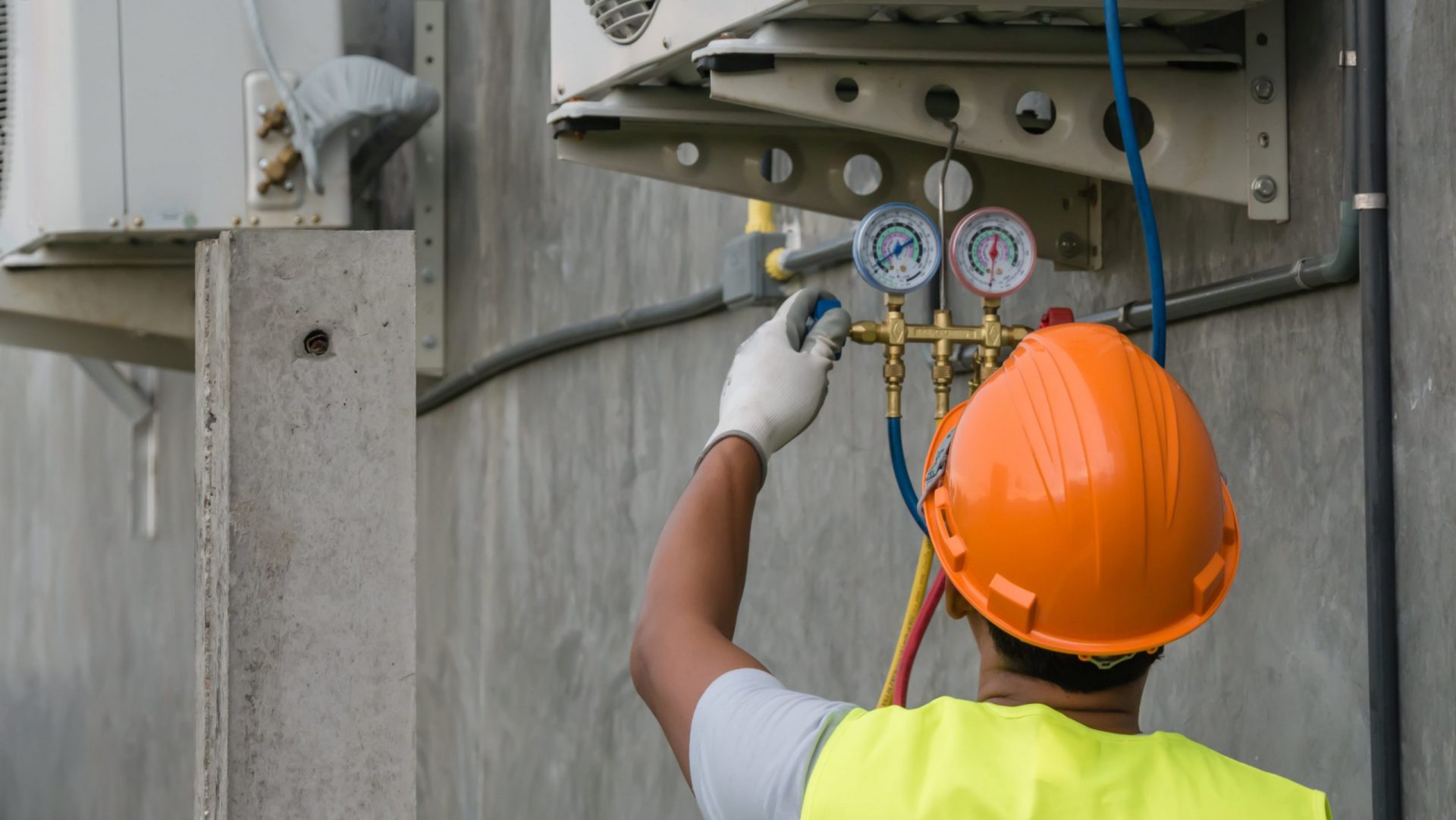

Articles
How Much Do HVAC Installers Make
Modified: February 23, 2024
Discover the article on how much HVAC installers make and explore the potential earnings in this profession. Gain insights into salary ranges and factors that can affect income.
(Many of the links in this article redirect to a specific reviewed product. Your purchase of these products through affiliate links helps to generate commission for Storables.com, at no extra cost. Learn more)
Introduction
The role of an HVAC (Heating, Ventilation, and Air Conditioning) installer is crucial in ensuring the comfort and functionality of residential and commercial buildings. These skilled professionals are responsible for installing, maintaining, and repairing HVAC systems, including heating and cooling units, ventilation systems, and ductwork.
While the demand for HVAC installers continues to grow due to an increasing focus on energy-efficient and environmentally friendly systems, many individuals considering a career in this field often wonder about the earning potential. Understanding the factors that impact HVAC installer salaries can provide valuable insight for those considering this career path.
In this article, we will delve into the various factors that influence the salaries of HVAC installers and provide an overview of the average earnings in the industry. We will also discuss how factors such as experience level, location, employer, and certification can affect an HVAC installer’s salary.
By gaining a comprehensive understanding of these factors, individuals aspiring to pursue a career as an HVAC installer can make informed decisions about their education, training, and job opportunities, ultimately maximizing their earning potential in this rewarding field.
Key Takeaways:
- HVAC installers’ salaries are influenced by experience, education, location, and industry demand. Continuous skill improvement and certifications can lead to higher earning potential in this thriving field.
- The job outlook for HVAC installers is promising, driven by industry growth, technological advancements, and the need for skilled professionals. Job stability and security make this career path financially rewarding.
Read more: How Much Do HVAC Salesman Make
Factors that Impact HVAC Installer Salaries
Several factors influence the salaries of HVAC installers, and understanding these variables is essential for those seeking to enter or advance in this field.
Experience Level: One of the primary factors that impact an HVAC installer’s salary is their level of experience. Entry-level HVAC installers typically earn a lower salary compared to those with several years of experience. As installers gain more expertise and demonstrate proficiency in their work, they often become eligible for higher-paying positions.
Education and Training: While a formal education is not always required to become an HVAC installer, completing a certificate or degree program in HVAC technology can significantly boost earning potential. The knowledge and skills acquired through education and training programs can lead to better job opportunities and higher salaries.
Location: The geographical location of the job also affects HVAC installer salaries. Metropolitan areas or regions with a high cost of living tend to offer higher wages to compensate for the increased expenses. Additionally, areas with a higher demand for HVAC services may also provide better earning potential for HVAC installers.
Employer: The type of employer can play a role in determining an HVAC installer’s salary. HVAC installers working for residential construction companies, commercial contractors, or specialized HVAC service providers may experience variations in pay rates. Additionally, those working for larger companies or unions may have access to higher wages and better benefits.
Certification and Specialization: Obtaining industry-recognized certifications and specialized training can significantly impact an HVAC installer’s earning potential. Certifications such as the North American Technician Excellence (NATE) certification or specific manufacturer certifications demonstrate a higher level of expertise and can lead to higher-paying job opportunities.
Industry Demand: The demand for skilled HVAC installers can also affect salaries. As the need for energy-efficient and environmentally friendly HVAC systems continues to grow, the demand for qualified installers increases. A higher demand for HVAC installers can result in competitive wages.
Economic Factors: Economic conditions, such as the state of the construction and real estate industries, can impact HVAC installer salaries. During periods of economic growth and increased construction activity, HVAC installers may experience higher demand and subsequently higher salaries.
It’s important to note that while these factors contribute to HVAC installer salaries, individual negotiation skills, work ethic, and performance can also influence earning potential. By staying updated on industry trends and continuously improving skills, HVAC installers can increase their value in the job market and potentially command higher salaries.
Average HVAC Installer Salaries
The average salary of HVAC installers can vary depending on several factors, including experience, education, location, and industry demand. According to the U.S. Bureau of Labor Statistics, as of May 2021, the median annual wage for HVAC mechanics and installers was $50,590.
It’s important to note that this figure represents the median salary, meaning that half of HVAC installers earned more than this amount and half earned less. The lowest 10 percent of earners in the field made less than $31,910 per year, while the highest 10 percent earned more than $79,040 annually.
While these numbers provide a general idea of the average earnings, it is crucial to consider the variations that exist based on factors such as experience, location, and industry specialization.
Experienced HVAC installers with several years of experience and specialized skills can earn significantly higher salaries. Those with advanced certifications and expertise in emerging technologies like solar heating or geothermal systems may command higher wages due to the rarity of their skill set.
Location also plays a significant role in HVAC installer salaries. Metropolitan areas and regions with a higher cost of living tend to offer higher wages. For example, HVAC installers working in cities like New York, Los Angeles, or San Francisco typically earn higher salaries compared to those working in less populated areas.
The type of industry or sector can also influence average salaries. HVAC installers working in residential construction may earn differently than those working in commercial settings or specialized HVAC service providers. It’s important to research and understand the average salaries in your specific industry and location to have an accurate understanding of potential earnings.
While salary is an important consideration, it’s also essential to consider the total compensation package. HVAC installers may receive benefits such as health insurance, retirement plans, paid time off, and opportunities for advancement within their organization. These factors should be taken into account when evaluating the overall value of a job.
By considering the factors that impact salaries and researching industry trends, HVAC installers can make informed decisions about their career paths and strive to maximize their earning potential.
HVAC Installer Salary by Experience Level
The experience level of an HVAC installer is a crucial factor that correlates with salary. As HVAC installers gain more experience and expertise in their field, their earning potential tends to increase. The following provides a general overview of how salaries can vary based on experience level:
Entry-Level: Entry-level HVAC installers typically have little to no prior experience in the field. These individuals often start their career by completing a vocational or trade school program in HVAC technology. The average salary for entry-level HVAC installers ranges from $30,000 to $40,000 per year.
Intermediate Level: HVAC installers who have gained a few years of experience and demonstrated proficiency in their work typically fall into the intermediate level category. These individuals have a solid foundation of knowledge and skills and may begin to specialize in certain areas of HVAC installation. The average salary for intermediate level HVAC installers ranges from $40,000 to $60,000 per year.
Experienced/Senior Level: HVAC installers with several years of experience and a high level of expertise in their field can expect to earn higher salaries. These individuals are often sought after for their knowledge and efficiency, and may even take on leadership roles within their organization. The average salary for experienced or senior level HVAC installers can range from $60,000 to $80,000 per year or more.
It’s important to note that these salary ranges are approximate and can vary based on other factors such as location, industry demand, and employer type. Additionally, HVAC installers who have specialized skills or certifications in specific areas, such as commercial HVAC systems or advanced energy-efficient technologies, may earn even higher salaries.
As HVAC installers gain experience and enhance their skills through continuous learning and professional development opportunities, they can position themselves for higher-paying job opportunities and further career advancement.
It’s also worth mentioning that some HVAC installers may choose to start their own businesses or work as independent contractors, which can potentially lead to higher earning potential. However, this comes with additional responsibilities such as managing business operations and obtaining necessary licenses and permits.
In summary, experience plays a significant role in determining an HVAC installer’s salary. By continuously improving their skills, gaining industry experience, and pursuing advanced certifications, HVAC installers can enhance their earning potential and advance their careers in this rewarding field.
HVAC Installer Salary by Location
The geographical location of an HVAC installer’s job can have a significant impact on their salary. Salaries can vary based on factors such as the cost of living, industry demand, and regional economic conditions. Here is an overview of how HVAC installer salaries can differ based on location:
Metropolitan Areas: HVAC installers working in major metropolitan areas or cities with a high cost of living often earn higher salaries compared to those in smaller towns or rural areas. Cities like New York, Los Angeles, and Chicago typically offer higher wages to compensate for the higher cost of living. The presence of large construction projects and commercial buildings in metropolitan areas can also contribute to a higher demand for skilled HVAC installers.
Regional Differences: Salaries can vary across different regions of the country. States or regions with a high demand for HVAC services and a thriving economy often offer higher salaries for HVAC installers. For example, areas with extreme weather conditions, such as the Southwest or Northeast, may require more HVAC services, leading to increased job opportunities and higher wages.
Cost of Living Adjustments: Some companies may offer cost of living adjustments to HVAC installers working in areas with a substantially higher cost of living. This allows them to maintain a comfortable standard of living despite the higher expenses. Cost of living adjustments can vary significantly depending on the location and the policies of the employer.
Rural and Less Populated Areas: HVAC installers working in rural areas or regions with a lower population density may earn lower salaries compared to their counterparts in urban areas. The demand for HVAC services in these areas tends to be lower, resulting in less competition and potentially lower wages. However, the cost of living in these areas is often lower as well, which can offset any disparities in salary.
It’s important for HVAC installers to research and understand the average salaries in their specific location to have a realistic expectation of potential earnings. Online salary databases, industry associations, and networking with professionals in the field can provide valuable insights into regional salary ranges.
It’s worth noting that while salary is an important consideration, factors like career growth opportunities, job stability, and overall quality of life should also be taken into account when evaluating job opportunities in different locations. A higher salary may not always compensate for other aspects of employment that are important to an individual’s well-being and job satisfaction.
By considering the cost of living, industry demand, and regional economic conditions, HVAC installers can make informed decisions about relocating or seeking job opportunities in areas that offer the best combination of salary and overall quality of life.
HVAC installers make an average of $48,730 per year, but this can vary based on location, experience, and employer. It’s important to research the specific market and company when considering a career in HVAC installation.
Read more: How Much Do Commercial HVAC Technicians Make
HVAC Installer Salary by Employer
The type of employer can have a significant impact on the salary of an HVAC installer. Different companies and organizations may offer varying compensation packages based on factors such as industry specialization, size of the company, and employee benefits. Here is an overview of how HVAC installer salaries can differ based on the type of employer:
Residential Construction Companies: HVAC installers working for residential construction companies may earn salaries that are on the lower end of the spectrum. These companies often focus on new residential construction projects and may offer competitive starting salaries for entry-level HVAC installers. As HVAC installers gain experience and demonstrate proficiency in their work, they may be able to negotiate higher wages or seek employment with companies that offer higher compensation.
Commercial Contractors: HVAC installers who work for commercial contractors tend to earn higher salaries compared to those in residential construction. Commercial projects often involve larger-scale HVAC systems and complex installations, which requires specialized skills and expertise. The demand for skilled HVAC installers in the commercial sector can lead to higher wages, especially for experienced installers with a proven track record.
Specialized HVAC Service Providers: Some HVAC installers work for specialized HVAC service providers that focus solely on HVAC installation and maintenance. These companies may offer competitive salaries to attract and retain skilled installers. The level of specialization and the demand for the company’s services can influence the salary offered to HVAC installers. Companies that specialize in advanced HVAC technologies or provide services to commercial and industrial clients may offer higher salaries to their installers.
Larger Companies and Unions: HVAC installers working for larger companies or unions may have access to higher salaries and better benefits. Larger companies often have more resources and can afford to offer competitive compensation packages to attract top talent. Unionized HVAC installers may benefit from collective bargaining agreements that ensure fair wages and benefits for their members.
Self-Employment and Contracting: Some HVAC installers choose to work as independent contractors or start their own business. While this path may offer higher earning potential, it also comes with additional responsibilities such as managing business operations, marketing, and accounting. Self-employed HVAC installers have the freedom to set their rates and negotiate their compensation with clients based on the market demand and their level of expertise.
When considering employment opportunities, HVAC installers should research the reputation and financial stability of the company or organization. While salary is an important consideration, other factors such as job stability, career growth opportunities, and employee benefits should also be taken into account.
Ultimately, HVAC installers can maximize their earning potential by gaining experience, staying updated on industry trends, seeking advanced certifications, and continuously improving their skills. By demonstrating professionalism and expertise in their field, HVAC installers can negotiate for higher salaries and position themselves for better job opportunities.
HVAC Installer Salary by Certification
Obtaining industry-recognized certifications can significantly impact an HVAC installer’s earning potential. These certifications validate a technician’s skills, knowledge, and level of expertise in specific areas of HVAC installation. Here is an overview of how HVAC installer salaries can differ based on certification:
North American Technician Excellence (NATE) Certification: The North American Technician Excellence (NATE) certification is widely recognized as a benchmark for HVAC excellence. HVAC installers who hold NATE certifications have demonstrated their expertise in specific areas, such as air conditioning, heat pumps, gas furnaces, or commercial refrigeration. Employers often value NATE certifications and may offer higher salaries to technicians who hold these credentials.
Manufacturer Certifications: HVAC equipment manufacturers often provide certification programs that validate a technician’s proficiency in installing and servicing their products. These certifications can enhance an HVAC installer’s earning potential, as they demonstrate specialized knowledge and expertise in specific manufacturer’s equipment. HVAC installers with multiple manufacturer certifications may be sought after by employers who work extensively with those equipment brands.
EPA 608 Certification: The EPA 608 certification is required by the U.S. Environmental Protection Agency for HVAC technicians who handle refrigerants. It demonstrates a technician’s understanding of the regulations and best practices related to refrigerant handling and disposal. HVAC installers who hold EPA 608 certification may have an advantage in the job market and may be eligible for higher starting salaries due to their compliance with environmental regulations.
Advanced Energy-Efficient Certifications: With increasing emphasis on energy efficiency and sustainability, HVAC installers who hold certifications in advanced energy-efficient technologies may earn higher salaries. Certifications such as Leadership in Energy and Environmental Design (LEED) Accredited Professional or certifications in solar heating or geothermal systems demonstrate a technician’s ability to work with cutting-edge, environmentally friendly HVAC technologies.
Industry Association Certifications: Professional organizations and industry associations often offer certifications that enhance an HVAC installer’s expertise and marketability. Certifications from these associations, such as the Sheet Metal and Air Conditioning Contractors’ National Association (SMACNA) or the Air Conditioning Contractors of America (ACCA), can validate a technician’s skills and dedication to professional development. Employers may recognize these certifications and provide higher salaries to technicians who hold them.
It’s important to note that while certifications can enhance an HVAC installer’s earning potential, it is not solely dependent on certifications. Factors such as experience, education, location, and industry demand also contribute to salary variations. However, certifications can set HVAC installers apart from their peers and provide them with a competitive edge in the job market.
Continuing education and staying updated on advancements in the field are essential for maintaining certifications and ensuring ongoing professional growth. By continuously improving their skills, HVAC installers can position themselves for higher-paying job opportunities and further career advancement.
As with any certification, it’s crucial for HVAC installers to research the credibility and industry recognition of the certification program they are considering. Investing in reputable and well-recognized certifications can have a positive impact on salary potential and career opportunities in the HVAC industry.
Benefits and Perks for HVAC Installers
Aside from competitive salaries, HVAC installers often enjoy a range of benefits and perks that add value to their overall compensation package. These benefits can vary depending on the employer and the industry, but here are some common benefits and perks that HVAC installers may receive:
Health Insurance: Many companies offer health insurance benefits to their employees, which can include medical, dental, and vision coverage. Having access to comprehensive health insurance helps HVAC installers and their families maintain good health and provides financial security in case of medical emergencies.
Retirement Plans: Some employers provide retirement plans, such as 401(k) or pension plans, to help HVAC installers save for their future. These plans often include employer contributions or matching, helping HVAC installers build a nest egg for retirement.
Paid Time Off: HVAC installers may be eligible for paid time off, including vacation days, sick leave, and holidays. Having the opportunity to take time off work and recharge is essential for maintaining work-life balance and overall well-being.
Training and Professional Development: Companies that value their HVAC installers invest in their professional development by providing opportunities for training and continuing education. These programs can help HVAC installers stay up to date with the latest industry advancements and equipment, enhancing their skills and marketability.
Tool and Work Equipment Allowance: Some employers provide a tool and work equipment allowance to HVAC installers, helping offset the cost of purchasing and maintaining essential hand tools, power tools, and equipment needed for their work. This benefit can significantly reduce out-of-pocket expenses for HVAC installers.
Uniforms and Work Gear: Many companies provide uniforms and work gear, including safety gear and specialized clothing, to HVAC installers. This ensures that HVAC installers are equipped with the necessary attire to perform their work safely and professionally.
Company Vehicles: HVAC installers may be provided with company vehicles or receive a vehicle allowance. This benefit eliminates the need for HVAC installers to use their personal vehicles for work-related tasks and provides convenience and reliability in transportation.
Bonus and Incentive Programs: Some employers have bonus and incentive programs in place to reward HVAC installers for exceptional performance, meeting targets, or exceeding customer satisfaction goals. These programs can provide additional financial incentives and recognition for HVAC installers’ hard work and dedication.
Career Advancement Opportunities: Companies that value the growth and development of their HVAC installers may offer career advancement opportunities. This can include opportunities for promotion to leadership roles, specialized project assignments, or access to advanced training and certifications.
It’s important for HVAC installers to consider these benefits and perks when evaluating job opportunities. While salary is a significant factor, the overall compensation package, including benefits and perks, contributes to job satisfaction and quality of life.
It’s worth noting that benefits and perks can vary depending on the employer and industry. HVAC installers should carefully review the benefits provided by potential employers to ensure they align with their personal preferences and needs.
By considering the full range of benefits and perks offered, HVAC installers can choose job opportunities that provide not only a competitive salary but also a comprehensive compensation package that supports their well-being and professional growth.
Job Outlook for HVAC Installers
The job outlook for HVAC installers is projected to be promising in the coming years, driven by factors such as technological advancements, increasing demand for energy-efficient systems, and the need for skilled professionals in the construction industry. Here is an overview of the job outlook for HVAC installers:
Industry Growth: The HVAC industry is expected to experience steady growth in the coming years. As the focus on energy efficiency and environmental sustainability continues to increase, there is a growing demand for HVAC systems that offer superior energy performance. This demand translates into a need for HVAC installers who are proficient in installing and maintaining advanced HVAC technologies.
Rising Demand for Skilled Professionals: Skilled HVAC installers are in high demand due to the complexity of modern HVAC systems. Employers are seeking professionals who possess the knowledge and expertise to work with sophisticated equipment and systems. HVAC installers who stay updated on industry advancements and acquire certifications in specialized areas are well-positioned to take advantage of the increased demand for their skills.
Advancements in HVAC Technology: Technological advancements in the HVAC industry are driving change and shaping the job market for HVAC installers. The integration of smart and connected HVAC systems, as well as the rising popularity of renewable energy technologies, requires HVAC installers to possess a broader skill set. Installers who are knowledgeable about these advanced technologies will have a competitive advantage in the job market.
Construction Industry Growth: The construction industry plays a significant role in the demand for HVAC installers. As new residential and commercial buildings are constructed and existing structures undergo renovations, there is a need for skilled HVAC installers to handle the installation and retrofitting of HVAC systems. The growth in commercial and residential construction projects contributes to job opportunities for HVAC installers.
Replacement and Maintenance Needs: In addition to new installations, there is a continuous need for HVAC maintenance and system replacements. HVAC systems have a limited lifespan and require regular upkeep to operate efficiently. HVAC installers who specialize in maintenance services or are skilled in retrofitting existing systems will have ongoing job prospects as they cater to the maintenance and replacement needs of residential and commercial clients.
Job Stability and Security: The demand for HVAC services is relatively stable, as HVAC systems are essential for maintaining comfortable indoor environments year-round. Unlike certain industries that may be more susceptible to economic downturns, HVAC installers can enjoy a level of job stability and security. The need for HVAC systems and the skilled professionals who install and maintain them ensures a consistent demand for HVAC installers regardless of economic conditions.
Overall, the job outlook for HVAC installers is promising, with projected growth and steady demand for skilled professionals. By staying updated on industry trends, acquiring relevant certifications, and continuously improving their skills, HVAC installers can position themselves for abundant job opportunities and a rewarding career in this thriving industry.
Read more: How Much Do Insulation Installers Make
Conclusion
Choosing a career as an HVAC installer can offer both financial stability and rewarding job satisfaction. Understanding the various factors that impact HVAC installer salaries is crucial for individuals considering or already pursuing this career path.
We have explored the factors that influence HVAC installer salaries, including experience level, education, location, employer, certification, and industry demand. These factors can significantly impact an HVAC installer’s earning potential and should be carefully considered when evaluating job opportunities.
While salaries can vary, the average salary for HVAC installers is competitive, with opportunities for growth and advancement. As HVAC systems become more complex and energy-efficient, the demand for skilled installers continues to rise. By staying updated on industry advancements, acquiring certifications, and continuously improving their skills, HVAC installers can position themselves for higher salaries and increased job prospects.
In addition to salaries, HVAC installers enjoy a range of benefits and perks, such as health insurance, retirement plans, vacation time, and training opportunities. These benefits contribute to job satisfaction and overall quality of life.
The job outlook for HVAC installers is positive, with steady industry growth, advancements in HVAC technology, and the need for skilled professionals. The construction industry contributes to job opportunities, as new buildings are constructed and existing structures require HVAC system replacements and maintenance.
In conclusion, pursuing a career as an HVAC installer can provide financial stability, job security, and opportunities for career growth. By gaining experience, acquiring industry-recognized certifications, and staying updated on industry trends, HVAC installers can maximize their earning potential and enjoy a fulfilling career in the field of heating, ventilation, and air conditioning.
Frequently Asked Questions about How Much Do HVAC Installers Make
Was this page helpful?
At Storables.com, we guarantee accurate and reliable information. Our content, validated by Expert Board Contributors, is crafted following stringent Editorial Policies. We're committed to providing you with well-researched, expert-backed insights for all your informational needs.
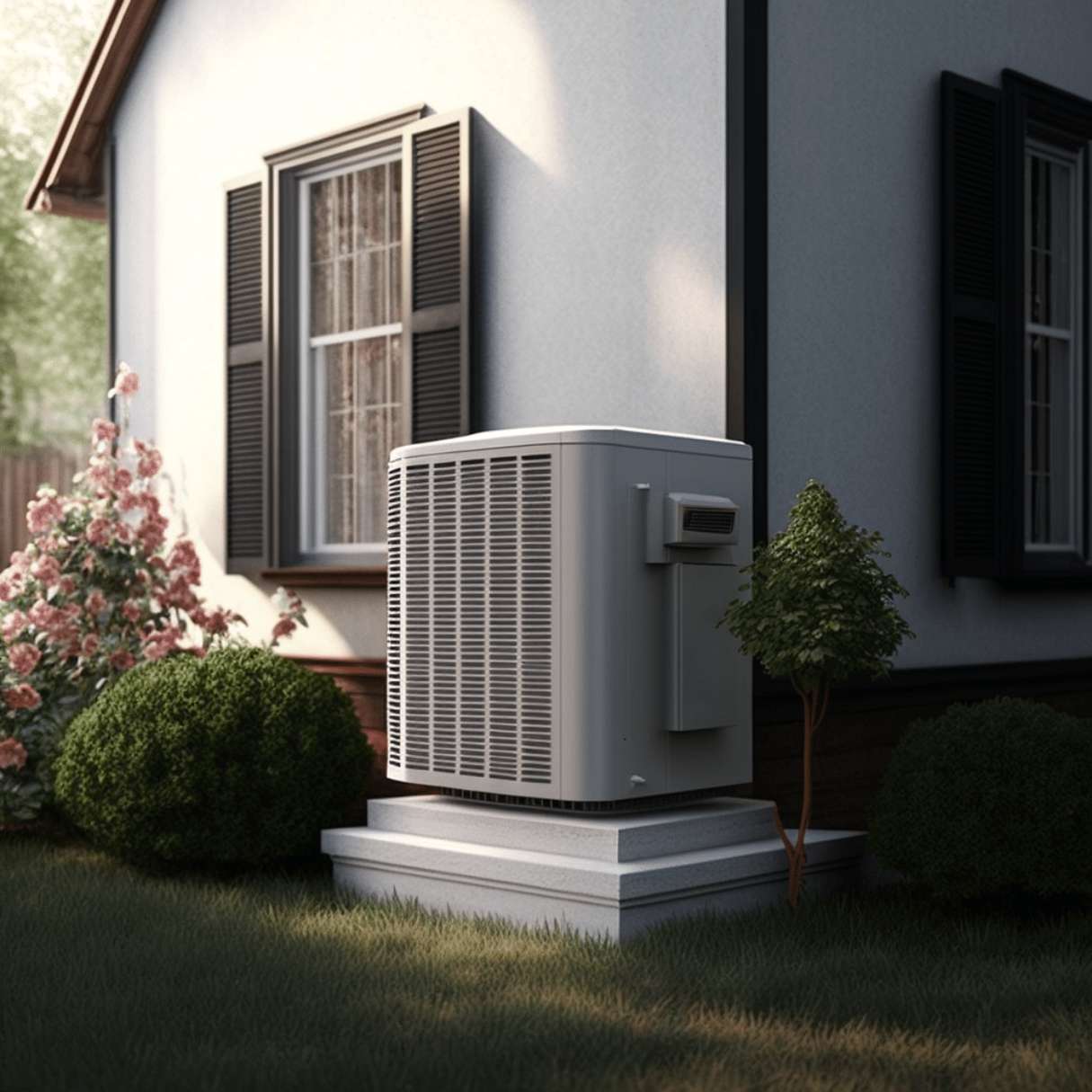
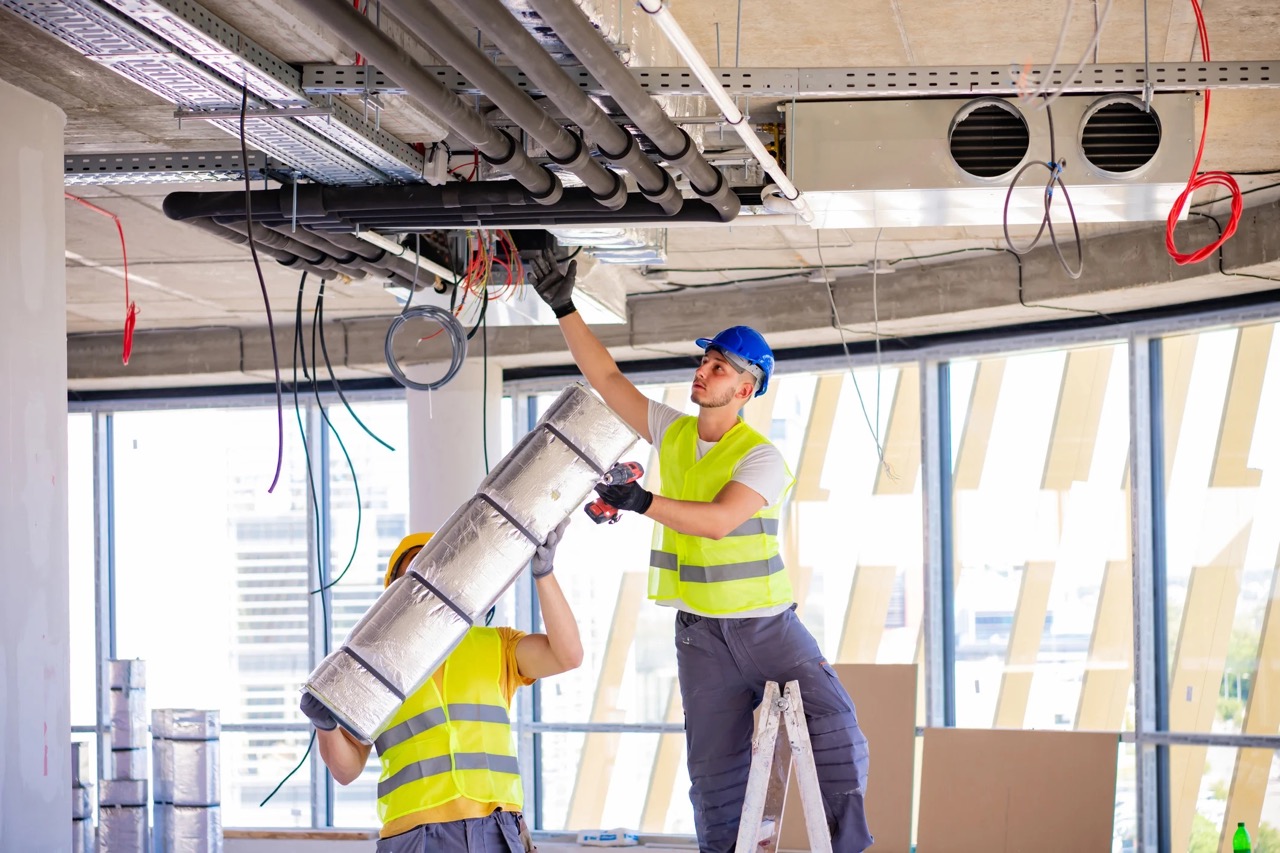
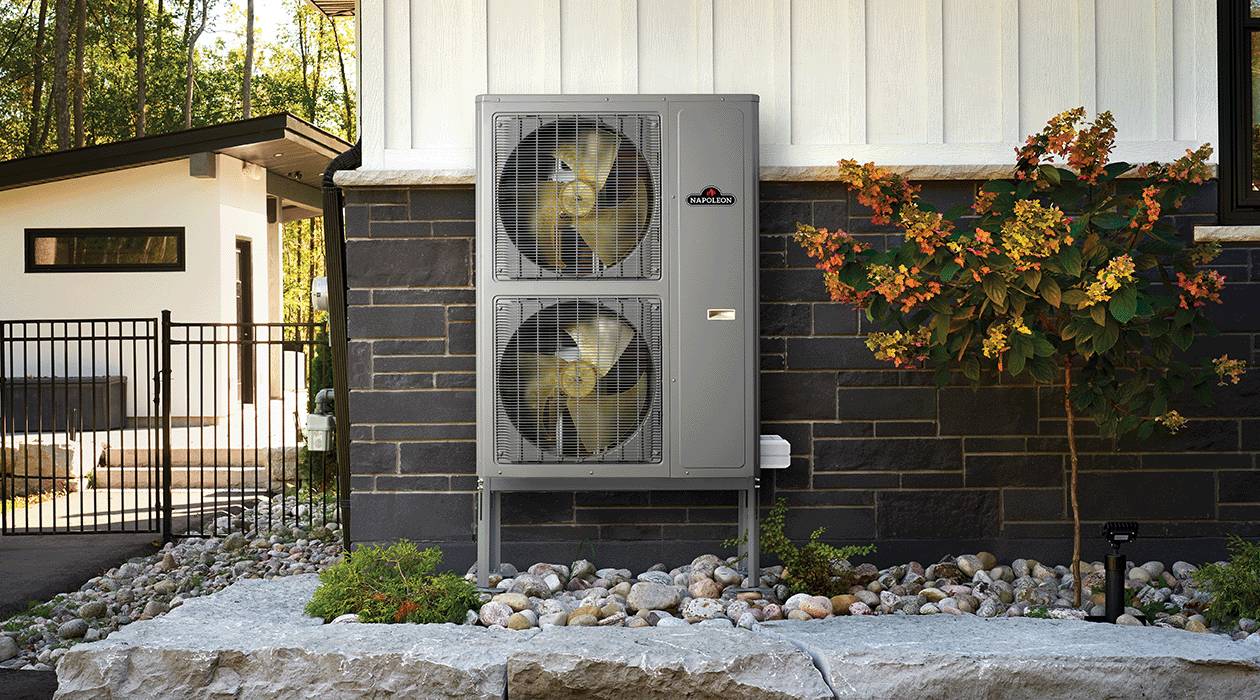
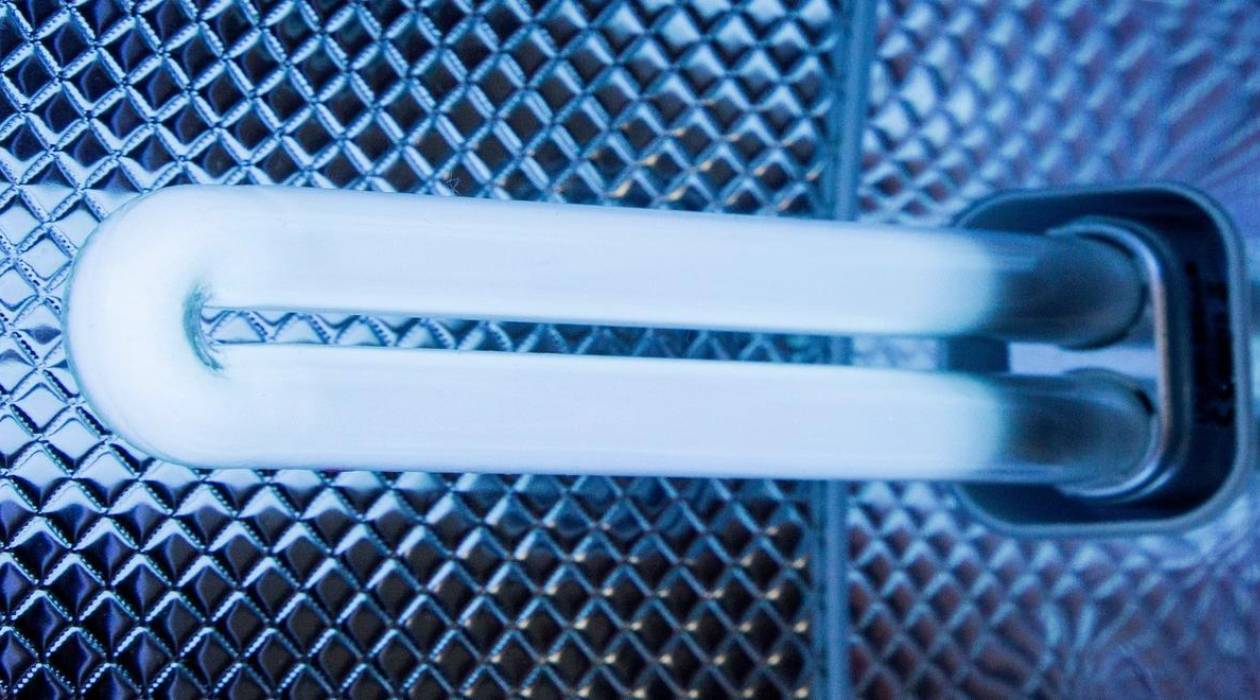
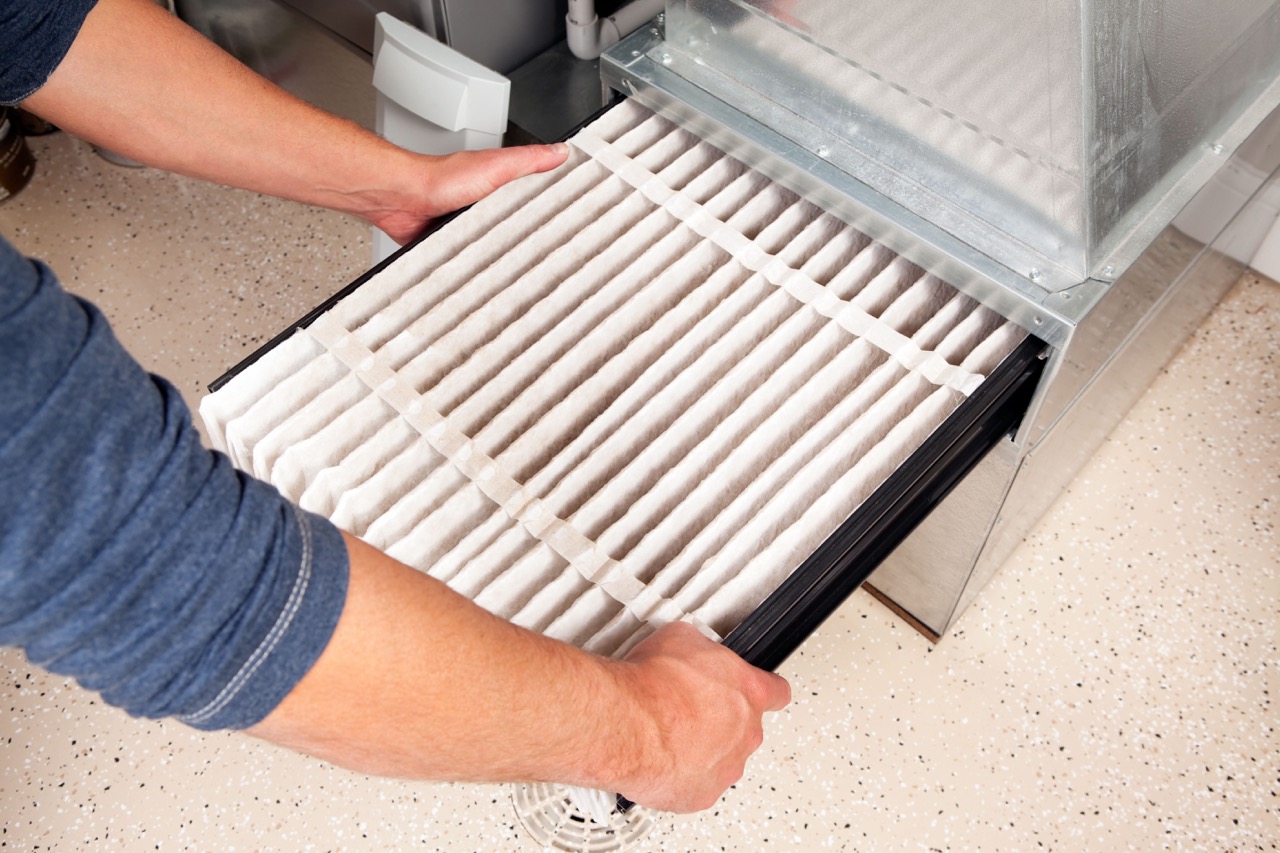
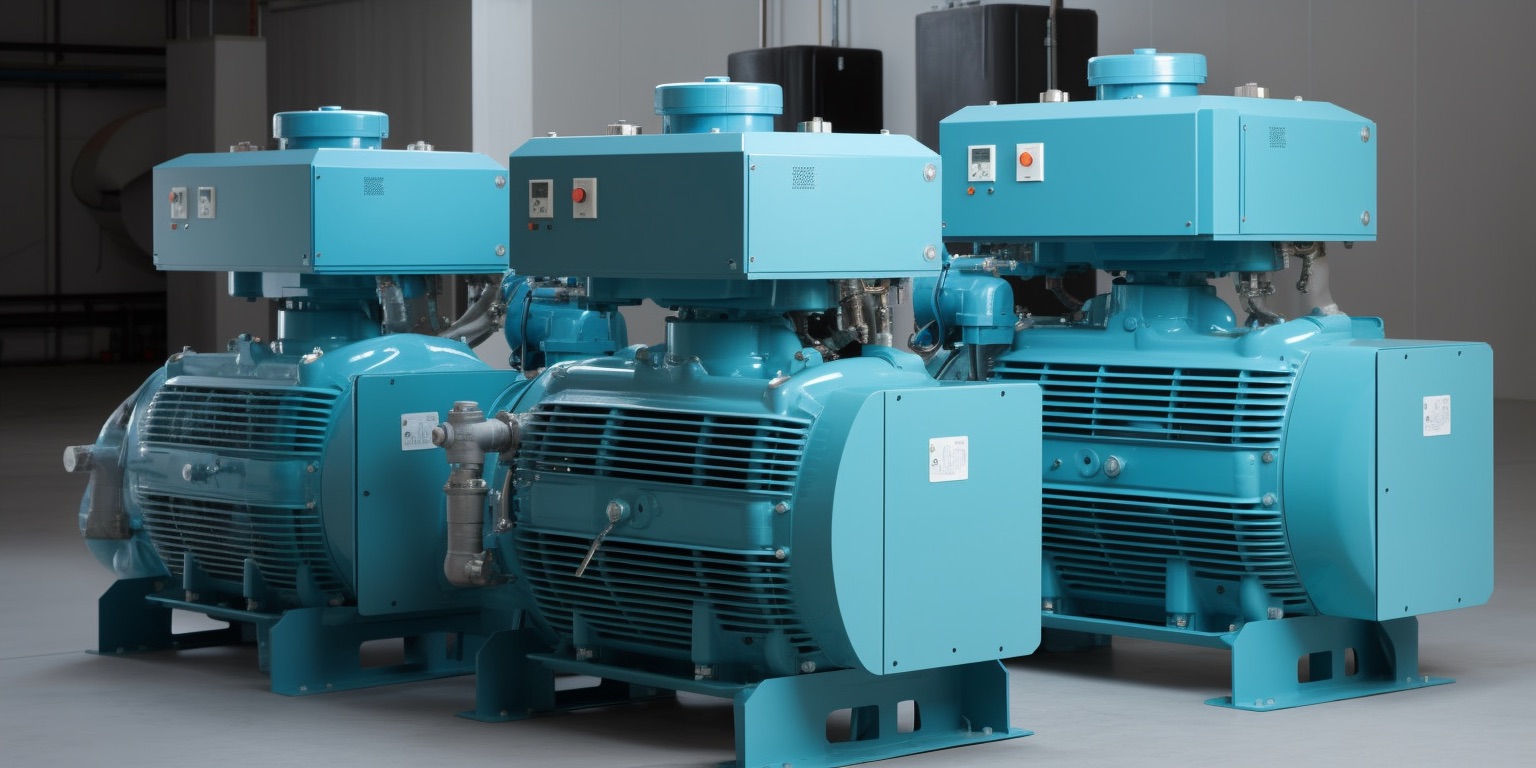





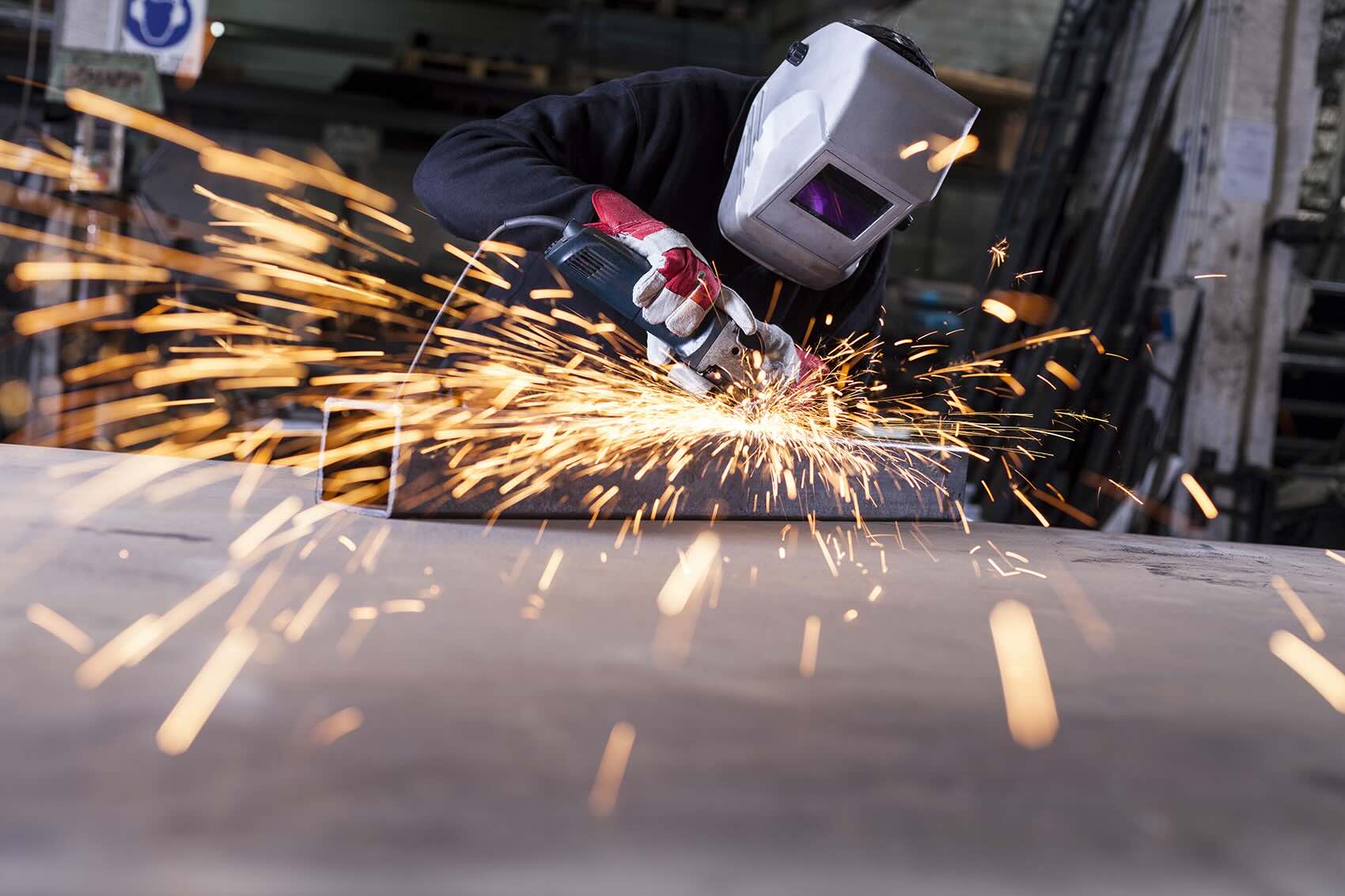


0 thoughts on “How Much Do HVAC Installers Make”